
Issue #68: Saturday 29 June, 2024
My reading pace is still rather slow, but I’m hoping that it will speed up in coming months.
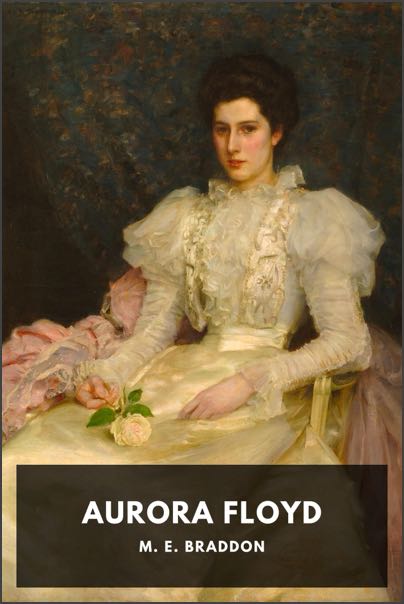
This was another production which I did for Standard Ebooks. I generally produce several titles for them each year (this one, by my count, is my 85th such production).
M. E. Braddon was a prolific and very popular writer of what came to be called “sensation fiction”, full of scandals, murders, cases of bigamy and adultery and so on—hot stuff for the Victorian era when they were written. The author’s full name was Mary Elizabeth Braddon, but she published using only her initials—Heaven forbid that women should be seen to be writing such stuff!
Today, only a few of her books are still in print. Her best-known novel, which became a best-seller in her lifetime, is Lady Audley’s Secret.
Aurora Floyd was published only a year after Lady Audley’s Secret. Though it did not achieve the same level of popularity, it was nevertheless well received. It was almost immediately turned into a stage play, and was the basis of a short silent film in 1912 produced by an American director.
The novel focuses on its eponymous heroine, Aurora Floyd, the daughter of a wealthy banker, who in his late forties scandalously married a poor actress from a northern county. His young wife died not long after Aurora’s birth, and the child was raised by her grieving father, who idolises her. Aurora thus grows up spoiled and somewhat headstrong. After she returns from the Parisian finishing school to which she was sent at the age of seventeen, it is clear that something occurred there which has led to a dark cloud hanging over her and which has caused her father immense grief. When a few years later she is courted and then marries a rich farmer and horse-breeder, the secrets of what happened in her teenage years eventually come to the surface again, leading to tragedy and a terrible suspicion hanging over her.
The author writes well, and there are some interesting musings on on philosophical issues. I liked this passage, for example, after a character has been told that the person he desperately seeks has left the place only a few hours before he arrived:
Ah! who has not heard those common words? Who has not been told that, if they had come sooner, or gone earlier, or hurried their pace, or slackened it, or done something that they have not done, the whole course of life would have been otherwise? Who has not looked back regretfully at the past, which, differently fashioned, would have made the present other than it is? We think it hard that we cannot take the fabric of our life to pieces, as a mantua-maker unpicks her work, and make up the stuff another way. How much waste we might save in the cloth, how much better a shape we might make the garment, if we only had the right to use our scissors and needle again, and refashion the past by the experience of the present!
All the main characters in the book are well distinguished and rounded. Aurora, the central character here, is a strong woman fighting against the consequences of her exploitation by an unscrupulous man when she was still in her teenage years. While her actions, and her desire for secrecy, can certainly be criticised, she is certainly no shrinking violet content to leave her salvation entirely in the hands of the men around her.
Without giving too much away, a murder occurs late in the book, and Aurora seems to have both the opportunity and a strong a motive for the killing. Nevertheless, it’s absurdly easy for the reader to guess who the real culprit is going to turn out to be: the question is really whether the crime can be sheeted home to that person in order to clear Aurora’s name.
All in all, an enjoyable read, and I’m tempted to produce more works by Braddon for Standard Ebooks (she published some 80 novels, so there’s plenty of scope!).
You can download a free, beautifully formatted and carefully proofread edition of Aurora Floyd from Standard Ebooks here. And while you’re at it, download Lady Audley’s Secret from here.
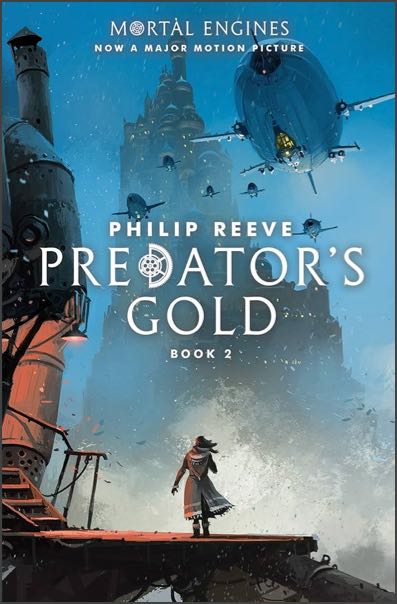
This is the second book in the Mortal Engines quartet. I discussed the first book last issue. At the end of that book our heroes Tom Natsworthy and Hester Shaw were fleeing in the airship Jenny Hanniver from the spectacular self-destruction of the great traction city London.
Hester, terribly disfigured years ago by the slash of a sword, can’t believe that Tom’s affection for her is real, or will last. And indeed the events of this book will test their relationship to its breaking point and beyond.
Much of the action centres on the small city of Anchorage as it crosses the frozen north of what remains of the Atlantic Ocean in search of a refuge from larger traction cities which may consume it and enslave its inhabitants. Indeed, one such predator, the huge city of Arkangel, is in relentless pursuit of it.
Also in the mix of the plot is an organisation called Green Storm, a group of rabid anti-tractionists, the head of which is convinced that Tom and Hester were involved in the destruction of the air fleet of the Anti-Traction League and in the death of her lover, Anna Fang, whose airship the Jenny Hanniver Tom and Hester are now aboard. Green Storm forces are hunting them across the skies, seeking revenge, though they are in fact innocent of these charges.
Look, if you aren’t interested in this kind of middle-grade fiction then that’s fine, but I like it a great deal, and I’m really enjoying re-reading this particular series. They are full of suspense, dramatic action and plot twists, really interesting characters and relationships, and a unique and fascinating (if very unlikely) concept of a future world and society.
I will, however, take a small pause rather than going on immediately to the next book in the series, Infernal Engines.
Note: If you are considering recommending these books to young people of your acquaintance, it’s worth noting that quite a bit of violence occurs in them, though it’s never given in gory detail. On the other hand, though it’s obvious that Tom and Hester have a sexual relationship, nothing more than kissing, hugging and sleeping together is ever described.
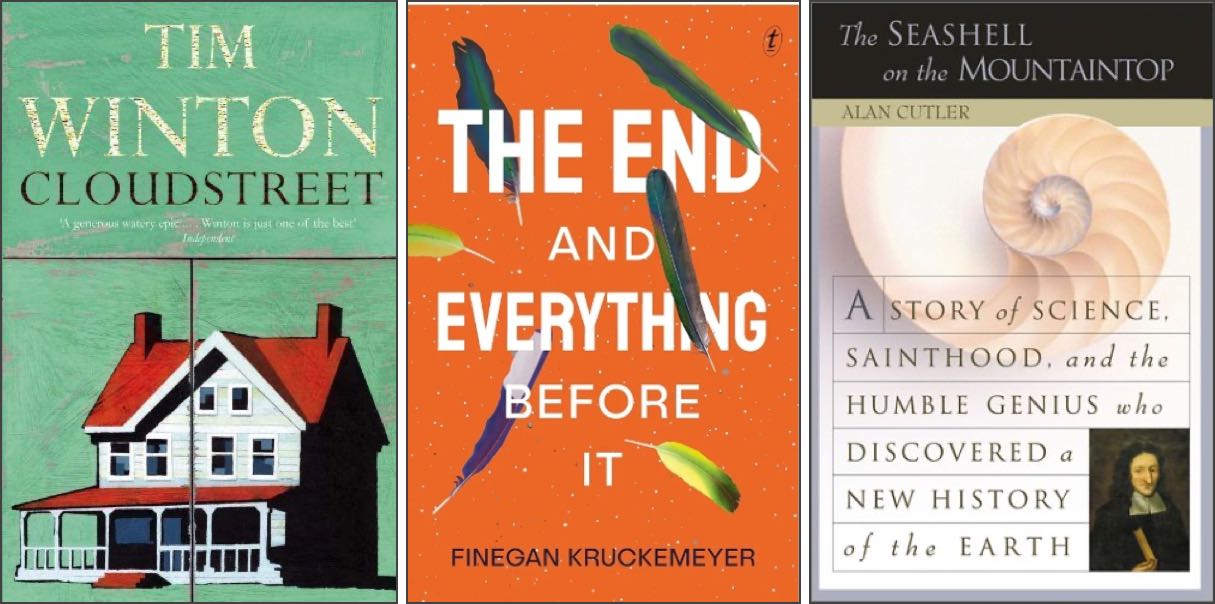
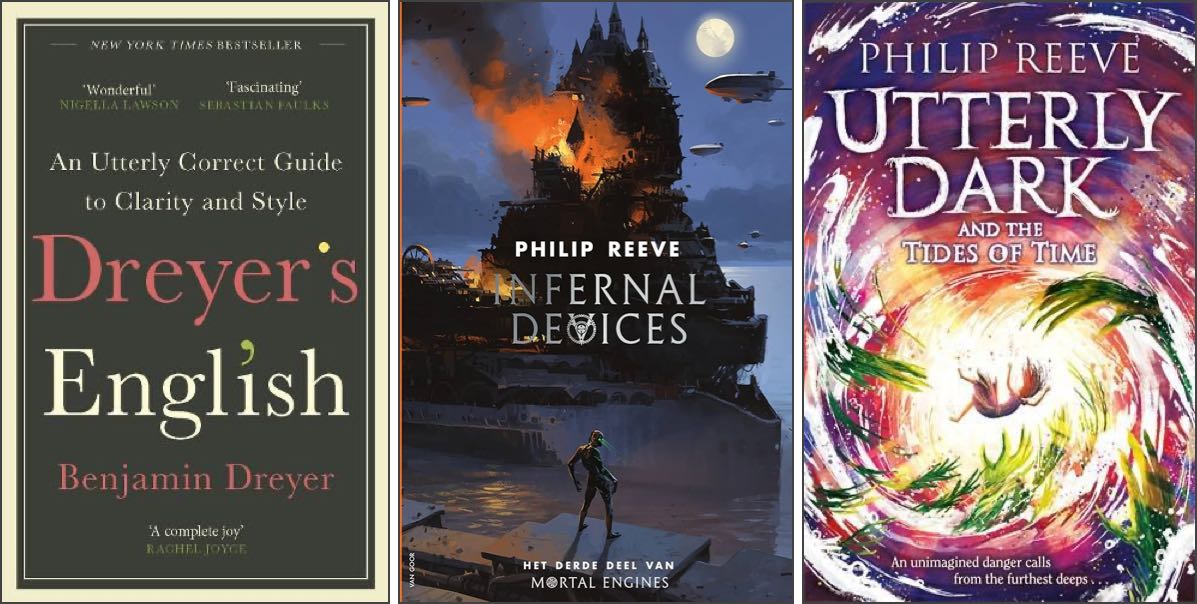
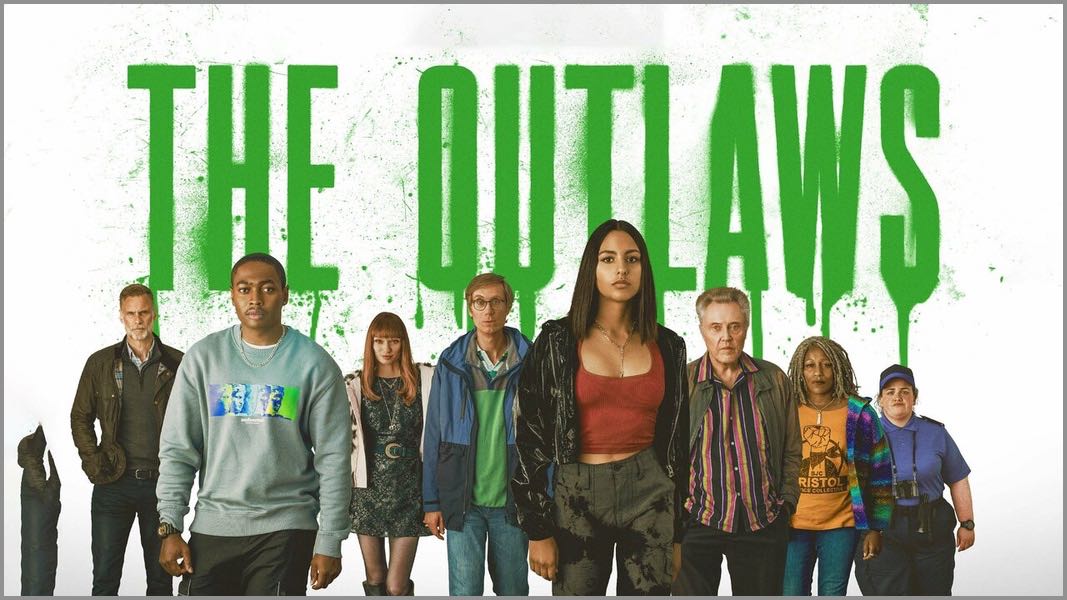
This is the third season of this comedy/thriller series created by Stephen Merchant and Elgin James. The kind of humour in this would probably appeal more to a British audience than an American one, I imagine, but I could be wrong about that. Anyway, my wife and I enjoyed it a lot.
The concept is of seven people, initially strangers to each other, who have each been convicted of some offence and as part of their punishment (or at the end of a prison sentence) have been sentenced to carry out a certain number of hours of community service.
Without going into too much detail, in the first season through complicated reasons this group of people are forced to get involved with the drug trade, run by a sinister character known as “The Dean”, who the police have so far been unable to convict. At the end of the second season, the group managed to load the boot of The Dean’s car with drugs which were then immediately discovered by the local police, and he was arrested on the spot.
In this third season, The Dean is in prison awaiting his trial. Young Rani, who at the end of the last season had left her boyfriend and headed off for wider fields, now returns. With a dead body in her car. She is desperately seeking help from her former friends to get rid of it. The dead body belongs to one of The Dean’s henchmen, who Rani says she witnessed being stabbed by a third party. But do the others believe her? And what will happen if The Dean can prove that he was framed and gets released?
There is plenty of comedy, action and tension, and a number of interesting sub-plots to do with each of the characters, some of them verging on the absurd, but others which have some depth and make you think.
Entertaining, but I don’t think it likely that there’ll ever be a fourth season.
Note: one pity is that Christopher Walken, who was excellent, and very funny, as the conman Frank in the first two seasons, only appears in a brief cameo in the third season.
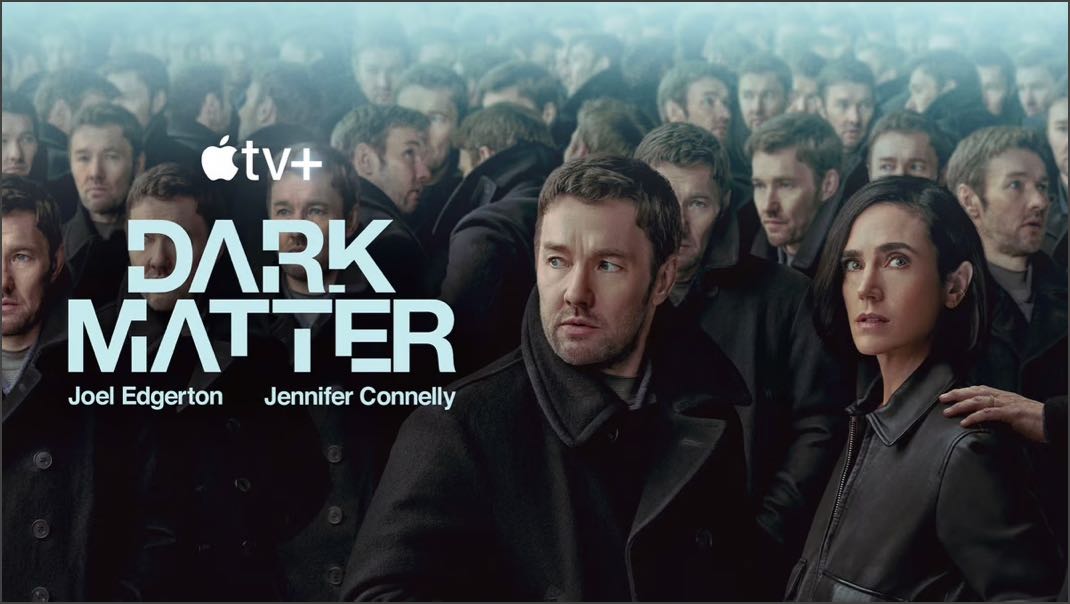
It’s very rare that a movie or television series is better than the book on which it is based; but I think I can say that is true here. The novel was good, but in this television version the author, who was heavily involved in the production, has taken the opportunity to change a few things and expand on the original plot in interesting ways.
Given that I’ve already reviewed the novel, I will just try to summarise the concept briefly here. It involves the concept of multiple timelines and quantum effects. The protagonist, Jason Dessen, a happily married man—let’s call him Jason 1—is violently abducted one night by a man in a mask, forced to drive to an abandoned industrial building and injected with a drug which knocks him out. He wakes up in a strange research facility. The staff here seem to know who he is and want to know what has happened to him, but he can’t answer their questions. It turns out that the version of Jason Dessen in this particular timeline—let’s call him Jason 2—has built a machine which has allowed him to arrive in the timeline of Jason 1 and essentially take over his life. The rest of the story is about how Jason 1 desperately tries to get back to his own timeline and recover his relationship with his wife and teenage son.
It’s tempting to call these two individuals Good Jason and Bad Jason, but that’s far too simplistic. One of the strengths of the television show over the book is that the show examines Jason 2’s motivations and feelings in more depth, and we get a better understanding how Jason 1’s unacknowledged regrets about his life lie behind the actions of Jason 2.
The show raises many interesting questions about identity and reality; about the decisions we make in life and how deciding differently could have changed everything; about the unintended consequences of our actions; and about how desperation can lead an otherwise good person to do evil things.
The acting in the show is top-notch, particularly Jennifer Connelly as Jason’s wife Daniella. She has to play several different versions of her character in different timelines, and is convincing in all of them. Alice Braga is also very good as Jason 2’s love interest in his home timeline, and who becomes Jason 1’s companion in his travels through the timelines.
Jason himself is played by Australian actor Joel Edgerton (who apparently came to fame in the series The Secret Life of Us, which I haven’t seen). He is certainly pretty good, but he does have a tricky job. Like Connelly, he has to play multiple versions of the same character yet nevertheless make them distinct to the viewer, but he doesn’t have the advantage Connelly has of the different settings, dress and styling of her characters. He doesn’t quite pull this off, in my view. He is certainly convincing as the bewildered Jason 1, but doesn’t entirely convey the hardness and determination of Jason 2. Perhaps I’m being unfair.
All in all I liked the show a lot. Definitely recommended.
Note: Given that it’s based on a book which has as yet no sequel, I didn’t expect that a second season of the show was likely, but on the other hand there is an intriguing, very brief, scene in the closing minutes which seems to open up the possibility of more. If they do produce another season, I’ll definitely be watching.
Comment on Issue 67
11 June 2024
Mark Nelson
---
I'm listening to Cloudstreet as an audiobook, so it's a slow process since I no longer have a long commute, and I'm only half-way through at the moment. But I'm definitely enjoying it.
Hardly surprising that you prefer the radio version of The Hitchhiker's Guide to the Galaxy since that's how it all started. I remember hearing people talking about it during the 1979 Worldcon in Brighton.
—David
If you’d like to make a modest contribution to my efforts in this newsletter, I’d love it if you would buy me a coffee.
Want to comment? Please send an email to:

© Copyright 2024 by David R. Grigg
and licensed under Creative Commons License CC BY-ND 4.0.
Interesting to read what you were taught at school about the solar system. I'm about 17 years younger than you. I don't remember being taught anything about how the solar system was formed. This doesn't mean that I wasn't. However, I am on more solid ground in saying that it was not a topic covered in the two years devoted to 'O' level physics (14-16) or 'A' level physics (16-18). For 'A' level physics we had to answer questions on an optional topic. It's possible that astrophysics was included on the list of optional topics. In any case our teachers picked rotational dynamics and medical physics as our optional topics. The former was a good choice for anyone also taking 'A' level mathematics. I'm pretty sure that everyone taking `A' level physics would also take 'A' level mathematics. I don't remember anything about medical physics. I do remember being told a story by one of our teachers when we were learning about medical physics. When the first X-ray machine was installed in Derby Hospital (1930s?) they were very careful to install lead panelling around the walls. However, they forgot about the ceiling and the floor...
Anything I knew about the Moon I learnt from watching The Clangers as a child. Possible note the most authoritative of sources...
Unusually, I have read two of the books that you discuss. After watching the Mortal Engines movie I was inspired to buy the set of books. I've only read these once, but I have reread the final chapter of the final book on numerous occasions. It is an excellent series, I was so engrossed by it that I didn't notice it was written for "young adults". I had a deprived childhood. I didn't read many novels for "young adults", because shortly after becoming a young adult I was mostly reading novels for adults. I would be interested in any recommendations that you can make on superior young adult novels in the SF genre. (To be added to the list of books I want to read, but mostly never will.)
As you point out the underlying premise of the story, mobile cities, does not really pass muster, perhaps a point I was willing to pass me by in a novel for young adults. But if we decide not to read SF that does not pass scientific muster, where would we be? Perhaps a double standard on my part, I'd be more critical of this scientific faux pas in a book aimed at adults.
When I first started to visit Australia one of my work contacts introduced me to Tim Winton. Cloudstreet was the first Winton novel that I read. I see that I've read seven of his novels and two of his collection of short stories. I really should read the ones I've missed out, in the case of his novels the ones I've not read are his early works from 1997 and earlier. I don't remember anything about Cloudstreet, except that it is very long. That made it ideal reading for the return trip from Australia to England. I probably should reread it at some point in the future. But will I?
I thought you would be entertained by the quote about SF and audio books. It was, as you point out, complete nonsense. I much prefer the radio version of HHGTTG to any other version, though that might be because it was the format in which I first discovered it. OTOH, a radio adaptation (with multiple voices, special effects, and music) is not quite the same as an audio book. Still, I don't see why SF should be a medium that is not suitable for the audiobook treatment.